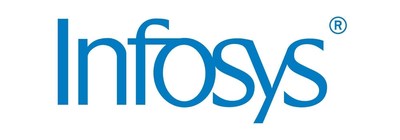While only 2% are ready, most companies expect productivity gains of 10-40% with Enterprise AI: Infosys Research
Infosys Knowledge Institute's new research reveals that while companies expect significant productivity gains from AI adoption (15% on average, up to 40%), only 2% are fully ready across five key dimensions: talent, strategy, governance, data, and technology. The study, surveying over 1,500 respondents across six countries, highlights major gaps in enterprise AI readiness. Only 9% of companies have necessary AI capabilities, and just 10% report ease of data access for AI projects. The research outlines five important steps for successful AI implementation: developing comprehensive strategy, establishing responsible governance, upskilling workforce, preparing data infrastructure, and cultivating innovation culture.
Il nuovo studio dell'Infosys Knowledge Institute rivela che, mentre le aziende si aspettano guadagni significativi in produttività dall'adozione dell'IA (in media il 15%, fino al 40%), solo il 2% è completamente pronto su cinque dimensioni chiave: talenti, strategia, governance, dati e tecnologia. Lo studio, che ha intervistato oltre 1.500 rispondenti in sei paesi, mette in evidenza grandi lacune nella preparazione delle aziende all'IA. Solo il 9% delle aziende possiede le capacità necessarie per l'IA, e solo il 10% riporta facilità di accesso ai dati per progetti di IA. La ricerca delinea cinque passi importanti per una corretta implementazione dell'IA: sviluppare una strategia completa, stabilire una governance responsabile, migliorare le competenze della forza lavoro, preparare l'infrastruttura dei dati e coltivare una cultura dell'innovazione.
La nueva investigación del Infosys Knowledge Institute revela que, aunque las empresas esperan obtener importantes ganancias de productividad con la adopción de la IA (15% en promedio, hasta un 40%), solo el 2% está completamente preparado en cinco dimensiones clave: talento, estrategia, gobernanza, datos y tecnología. El estudio, que encuestó a más de 1,500 encuestados en seis países, destaca las principales brechas en la preparación empresarial para la IA. Solo el 9% de las empresas tiene las capacidades necesarias para la IA, y solo el 10% informa sobre la facilidad de acceso a los datos para proyectos de IA. La investigación describe cinco pasos importantes para una implementación exitosa de la IA: desarrollar una estrategia integral, establecer una gobernanza responsable, mejorar las habilidades de la fuerza laboral, preparar la infraestructura de datos y fomentar una cultura de innovación.
인포시스 지식 연구소의 새로운 연구는 기업들이 AI 채택을 통해 평균 15%에서 최대 40%의 생산성 향상을 기대하는 반면, 다섯 가지 주요 차원인 인재, 전략, 거버넌스, 데이터 및 기술 전반에 걸쳐 완전히 준비된 회사는 단 2%에 불과하다고 밝혔습니다. 이 연구는 여섯 개 국가에서 1,500명 이상의 응답자를 대상으로 실시되었으며, 기업의 AI 준비 상태에 주요 갭을 강조합니다. 오직 9%의 기업만이 필요한 AI 기능을 갖추고 있으며, 단지 10%만이 AI 프로젝트를 위한 데이터 액세스의 용이성을 보고했습니다. 이 연구는 성공적인 AI 구현을 위한 다섯 가지 중요한 단계를 개 outline 합니다: 포괄적인 전략 개발, 책임 있는 거버넌스 수립, 인재 역량 개발, 데이터 인프라 준비, 혁신 문화 배양.
La nouvelle recherche de l'Infosys Knowledge Institute révèle que, bien que les entreprises s'attendent à des gains de productivité significatifs grâce à l'adoption de l'IA (15 % en moyenne, jusqu'à 40 %), seulement 2 % sont pleinement prêtes sur cinq dimensions clés : talents, stratégie, gouvernance, données et technologie. L'étude, qui a interrogé plus de 1 500 répondants dans six pays, souligne les principales lacunes dans la préparation des entreprises à l'IA. Seulement 9 % des entreprises disposent des capacités nécessaires pour l'IA, et seulement 10 % signalent une facilité d'accès aux données pour les projets d'IA. La recherche décrit cinq étapes importantes pour une mise en œuvre réussie de l'IA : développer une stratégie globale, établir une gouvernance responsable, former la main-d'œuvre, préparer l'infrastructure des données et cultiver une culture d'innovation.
Die neue Forschung des Infosys Knowledge Institute zeigt, dass Unternehmen zwar erhebliche Produktivitätsgewinne durch die Einführung von KI erwarten (im Durchschnitt 15%, bis zu 40%), jedoch nur 2% in fünf entscheidenden Dimensionen vollständig bereit sind: Talent, Strategie, Governance, Daten und Technologie. Die Studie, die über 1.500 Befragte in sechs Ländern untersucht hat, hebt wesentliche Lücken in der Bereitschaft der Unternehmen für KI hervor. Nur 9% der Unternehmen verfügen über die notwendigen KI-Fähigkeiten, und nur 10% berichten über einen einfachen Datenzugang für KI-Projekte. Die Forschung skizziert fünf wichtige Schritte für eine erfolgreiche KI-Implementierung: Entwicklung einer umfassenden Strategie, Etablierung einer verantwortlichen Governance, Upskilling der Mitarbeiter, Vorbereitung der Dateninfrastruktur und Förderung einer Innovationskultur.
- Companies expect 15-40% productivity gains from AI implementation
- Research provides comprehensive framework for AI implementation across five key dimensions
- Only 2% of organizations are fully ready for AI adoption
- Only 9% possess necessary AI technological capabilities
- Only 10% report easy data access for AI projects
- Only 21% of employees have required AI knowledge
- 30% report poor data accuracy and governance
Insights
The research findings reveal significant implications for the enterprise software and IT services sector. With only
The research highlights five critical areas where enterprises need support, creating multiple revenue streams: strategy consulting, governance framework implementation, talent development, data infrastructure optimization and technology integration. This positions Infosys advantageously in the growing enterprise AI market, particularly as companies rush to close these readiness gaps.
The findings validate Infosys's strategic focus on AI services through initiatives like Infosys Topaz, indicating strong alignment with market needs and potential for sustained growth in AI-related revenue streams.
The stark contrast between enterprise AI aspirations and readiness levels reveals critical technological bottlenecks. The
The data readiness statistics are particularly concerning - with only
The emphasis on responsible AI governance and security demonstrates growing awareness of AI risks, but the low
Enterprises need to prepare themselves in five key areas – strategy, governance, talent, data, and technology – to achieve significant productivity gains from AI
BENGALURU,

The Infosys Enterprise AI Readiness report includes insights from over 1,500 respondents across
The Infosys research highlights that while executives envision AI as the next industrial revolution, transforming business models and shaping the new economy, many companies lack the foundational building blocks for successful enterprise AI adoption. According to the research, enterprises expect an average increase of
To overcome these hurdles and realize the full potential of AI, including gen AI, companies must address readiness gaps and foster a culture of innovation. A clear AI strategy aligned with business objectives is essential, encompassing technology investments, talent acquisition, and ethical considerations.
The research outlines five steps to close the gaps and reduce apprehensions about AI to accelerate adoption:
- Develop a comprehensive AI strategy: A strong AI strategy aligns with business objectives, enhances revenue growth, and ensures desirable, feasible, and viable use cases. Only
23% of our respondents show readiness in this area. - Establish responsible AI governance: AI governance is crucial for managing risks like bias, misuse, and security threats. Only
10% of companies have well-defined governance processes. Responsible AI requires tailored guidelines, and a centralized AI governance team. Infosys' Responsible AI Office, part of Infosys Topaz, demonstrates this approach by establishing policies to ensure data security and mitigate risks, enhancing AI's value for enterprises. - Upskill the workforce: Despite the critical role of AI in enterprises, only
21% said their employees have the requisite knowledge to adopt AI tools and techniques. Upskilling is key, yet just12% offer adequate training. Effective AI integration hinges on closing skills gaps and fostering collaboration. Forward-thinking firms are creating AI skill pathways to ensure readiness. - Prepare data infrastructure for AI: Data health is crucial for AI success but remains a challenge. Only
10% of the companies find their data easy to access, while30% rate their data accuracy and governance as poor. Enterprises need to constantly assess their systems, improve data quality, and ensure proper storage for effective AI implementation. - Cultivate a culture of tech-powered innovation: Technology is a significant gap in enterprise AI readiness, with only
9% of companies fully prepared. Investing in foundational technologies like machine learning and automation can improve customer experience, reduce errors, and enhance compliance. Fostering a culture of innovation and employee readiness for AI adoption enables enterprises to create better value.
Mohammed Rafee Tarafdar, Chief Technology Officer, Infosys, said: "To become enterprise-wide AI-ready and realize the promise of this technology, including gen AI, it is imperative to establish a robust and scalable foundation. Our research and learnings from our AI-first transformation journey has shown that data readiness, enterprise gen AI platform with responsible AI guardrails, and AI talent transformation are key to accelerate and democratize AI development. This must be complemented by an AI foundry and factory model for scaling AI initiatives across the enterprise."
Jeff Kavanaugh, Head of Infosys Knowledge Institute, said, "Our research found that Enterprise AI, including gen AI, promises to unlock up to
To read the full report with detailed insights, please visit here.
About Infosys
Infosys is a global leader in next-generation digital services and consulting. Over 300,000 of our people work to amplify human potential and create the next opportunity for people, businesses and communities. We enable clients in more than 56 countries to navigate their digital transformation. With over four decades of experience in managing the systems and workings of global enterprises, we expertly steer clients, as they navigate their digital transformation powered by cloud and AI. We enable them with an AI-first core, empower the business with agile digital at scale and drive continuous improvement with always-on learning through the transfer of digital skills, expertise, and ideas from our innovation ecosystem. We are deeply committed to being a well-governed, environmentally sustainable organization where diverse talent thrives in an inclusive workplace.
Visit www.infosys.com to see how Infosys (NSE, BSE, NYSE: INFY) can help your enterprise navigate your next.
Safe Harbor
Certain statements in this release concerning our future growth prospects, or our future financial or operating performance, are forward-looking statements intended to qualify for the 'safe harbor' under the Private Securities Litigation Reform Act of 1995, which involve a number of risks and uncertainties that could cause actual results or outcomes to differ materially from those in such forward-looking statements. The risks and uncertainties relating to these statements include, but are not limited to, risks and uncertainties regarding the execution of our business strategy, increased competition for talent, our ability to attract and retain personnel, increase in wages, investments to reskill our employees, our ability to effectively implement a hybrid work model, economic uncertainties and geo-political situations, technological disruptions and innovations such as Generative AI, the complex and evolving regulatory landscape including immigration regulation changes, our ESG vision, our capital allocation policy and expectations concerning our market position, future operations, margins, profitability, liquidity, capital resources, our corporate actions including acquisitions, and cybersecurity matters. Important factors that may cause actual results or outcomes to differ from those implied by the forward-looking statements are discussed in more detail in our US Securities and Exchange Commission filings including our Annual Report on Form 20-F for the fiscal year ended March 31, 2024. These filings are available at www.sec.gov. Infosys may, from time to time, make additional written and oral forward-looking statements, including statements contained in the Company's filings with the Securities and Exchange Commission and our reports to shareholders. The Company does not undertake to update any forward-looking statements that may be made from time to time by or on behalf of the Company unless it is required by law.
Logo: https://mma.prnewswire.com/media/633365/Infosys_Logo.jpg
![]() View original content:https://www.prnewswire.com/news-releases/while-only-2-are-ready-most-companies-expect-productivity-gains-of-10-40-with-enterprise-ai-infosys-research-302289887.html
View original content:https://www.prnewswire.com/news-releases/while-only-2-are-ready-most-companies-expect-productivity-gains-of-10-40-with-enterprise-ai-infosys-research-302289887.html
SOURCE Infosys








